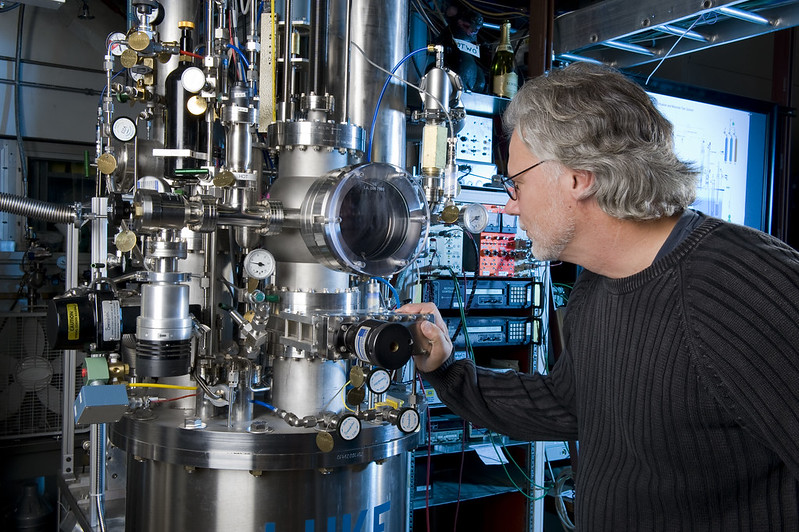
Every new PhD student has to face the difficult decision of choosing an adviser. During the next 5 to 6 years, the student will work under the guidance of the adviser, with efforts of trying to learn the craft of doing scientific research. Those were the thoughts in my mind back in the Fall of 2015 as I started fresh in the ELE department at Princeton University. Now, as a senior PhD candidate, I have earned new insights along the way that are worth sharing. Mainly, I want to tell you that you do not only join a PhD adviser, but a whole team of people working around a similar goal. Looking back, I want to write down that the process of choosing an adviser is better described and tackled as choosing a laboratory where to work on.
The majority of senior professors (post-tenure) don’t do experiments anymore. So their training with you is on ideas, writing, and presentations. Although I have heard about exceptions. Sometimes, they will just provide your stipend and leave you on your own for years on end.
It is key to look at the body of student/postdocs in the lab (small or large). In large groups there could be a lot of opportunities to learn in the experimental side (being instruments or programming). You have a lot of minds to pick at, and learn from (remember the professor doesn’t do experiments anymore). In contrast, in small groups the number of people to talk to is more limited, but it could be yet very educative. In large groups, where there is a large body of postdocs, it is likely you will get good training on the experimental side because postdocs have gone through a PhD. Meaning that they know how to do scientific research. In a small group with no postdocs you will be trained by the senior graduate students (hopefully). Senior graduate student are mainly figuring things out yet, so their training may be erratic, and even not good. Something to be aware of is, big gaps in the years that students joined a laboratory. Usually if there is a constant influx of students (yearly) that means that the training gets transmitted smoothly from year to year. If there is a gap in the student body, it could happen that there will be gaps in instrument training. Which means, that you could end up trying to figure things out by yourself. Although it is very likely that you will learn at the end, it could be treacherous path.
To work with young professor means to get training directly from him, especially if you are one of the first couple of students to join his/her laboratory. The training will range from experimental to writing, etc. There is very little information about how the culture of the lab will be, so in that regard, it is very hard to know a priori if it is a good fit for you. Nevertheless, it offers you the opportunity to work with a “postdoc” that has just landed a faculty position, so it is likely that you will learn good practices.
Whether if it is a young or old professor the laboratory culture will matter and will determine your happiness. Laboratory cultures that align with your way of doing things will make for an easier transition into scientific research. The culture covers as much as the student-professor relationship and student-student relationships. Things that the culture of a laboratory encompasses are the amount of hierarchy, number of work hours, is everybody on their own or do they want to train you?, how are the lab responsibilities/maintenance being distributed?, what does the adviser expect from you at different stages?, is there a rigid structure of deadlines or everybody goes at their own pace?.
With senior professors you can have access to a big alumni network. That can give you an advantage when you are trying to look for advise. With the young professor, you both are growing together. Even though there is no alumni network yet, you can probably, to some extent, reach out to your boss’ collaborators or previous peers.
I am assuming that you have a little bit of freedom in choosing the laboratory you will try to join. Midway during my PhD I realized that choosing and adviser is better framed in terms of choosing a laboratory. You will not just be next to your adviser for the next 6 years but also next to your labamates. Both interactions will have an impact on you.
The takeaway is that when you try to pick up the craft of doing scientific research, the training does not only come from your adviser. The learning will come in all sort of forms: labmates, technicians, and adviser. The fact of the matter is that you will join a laboratory, so it is wise to give it some thought as to where/what is the best environment for your own unique growth – the adviser is only a piece in the whole puzzle.
(photo by Fermilab)
73 total views